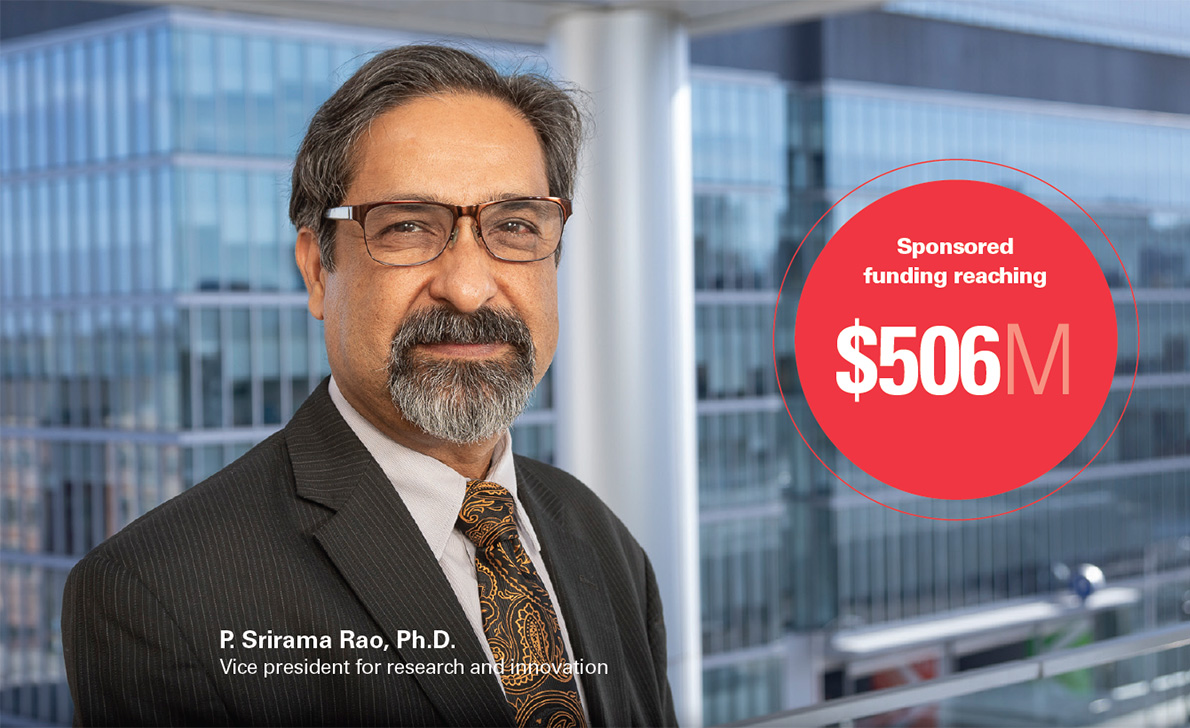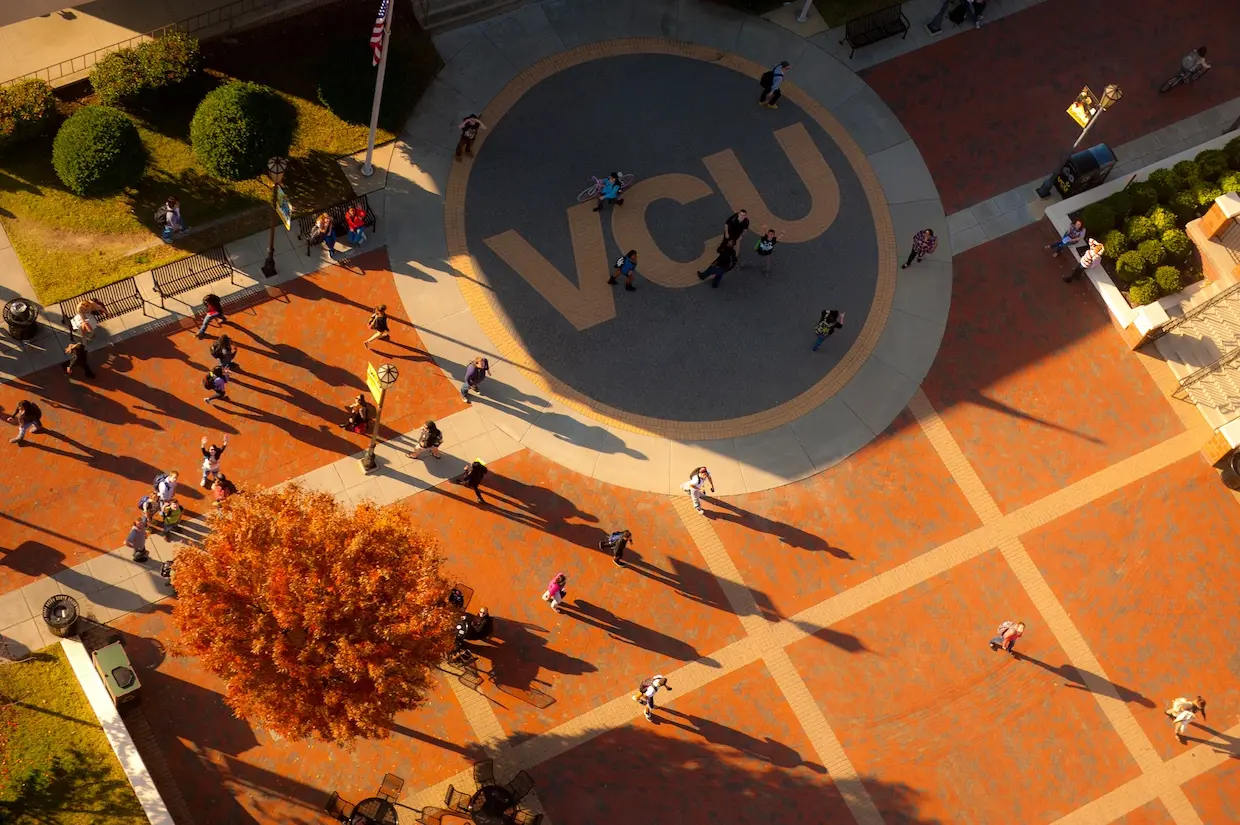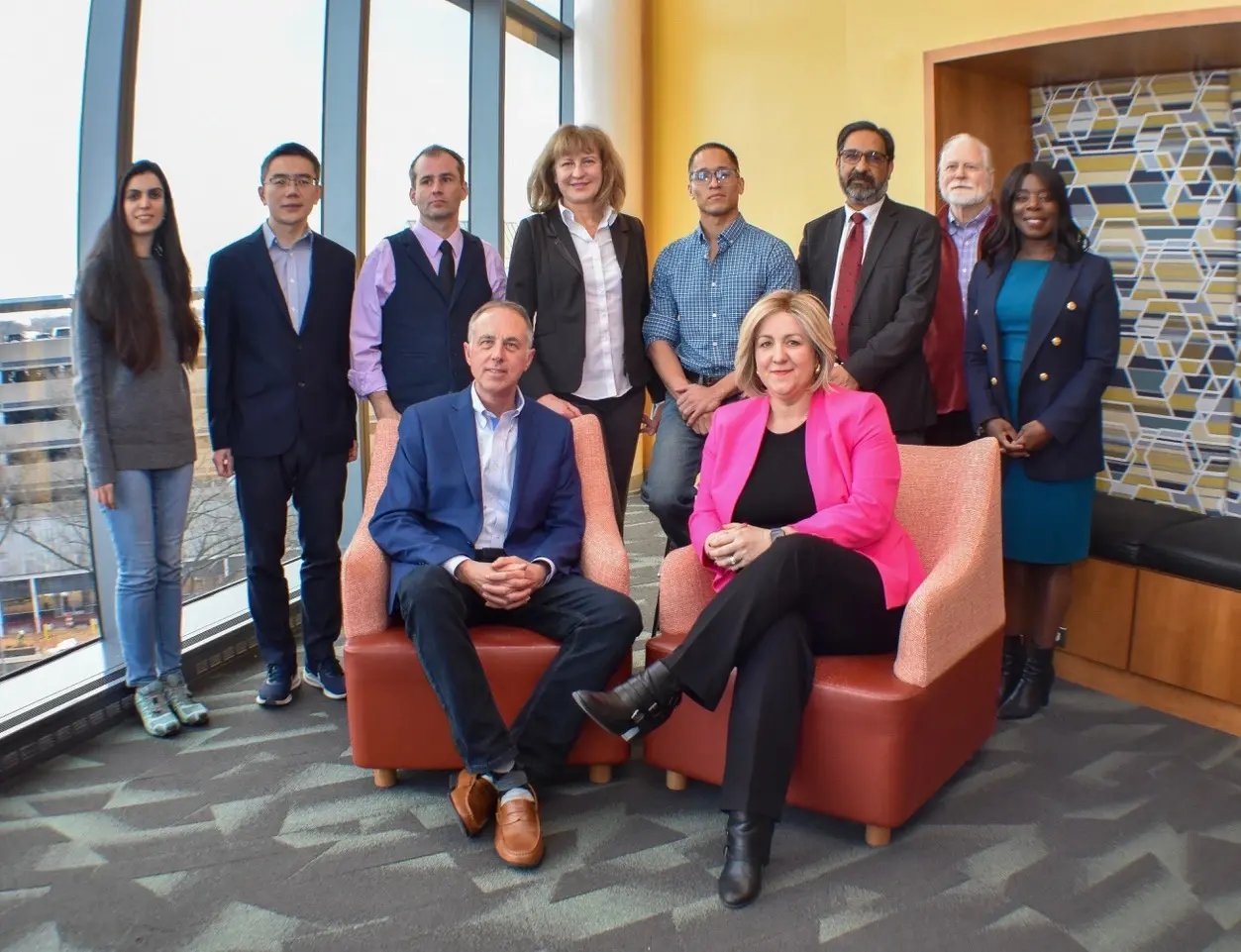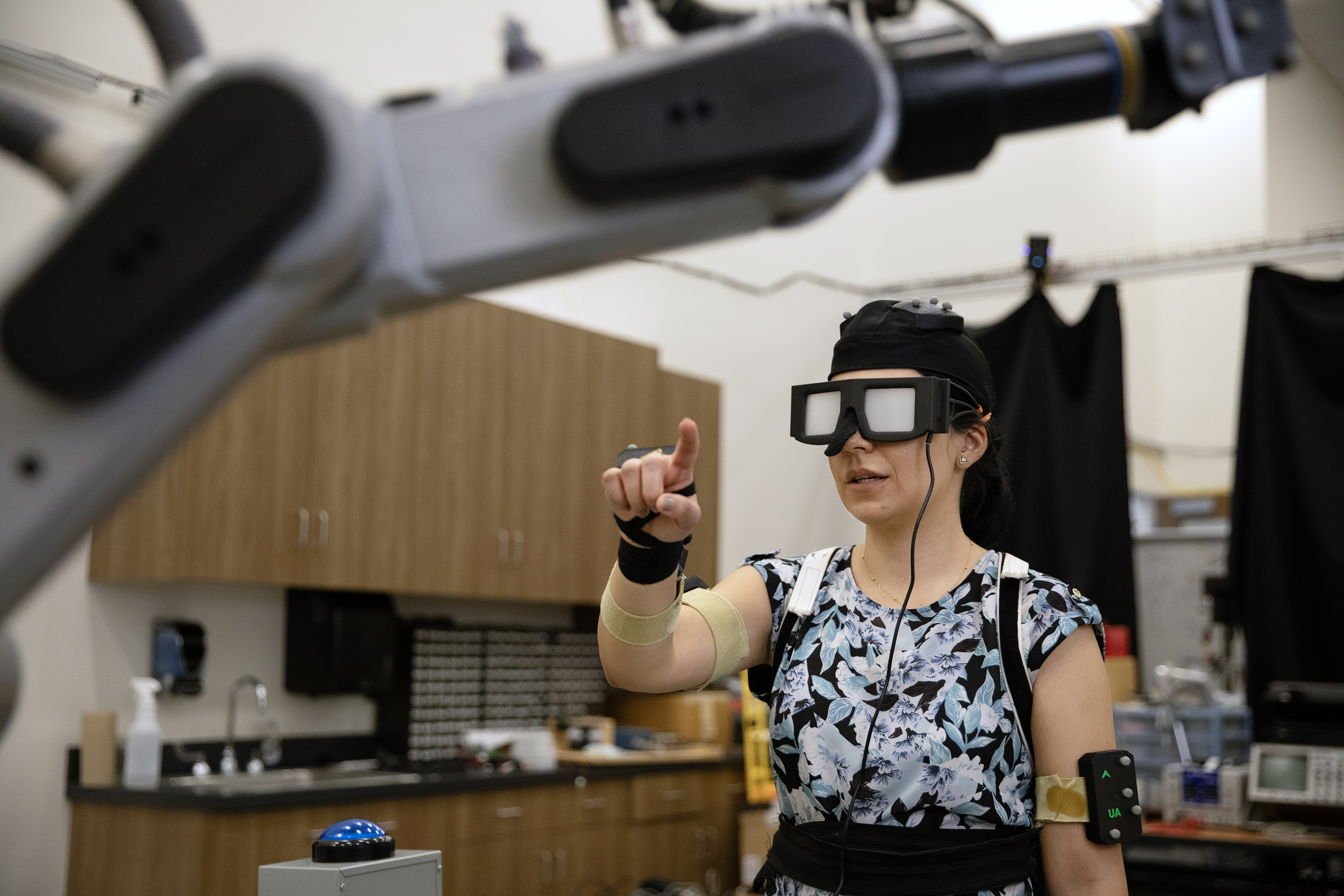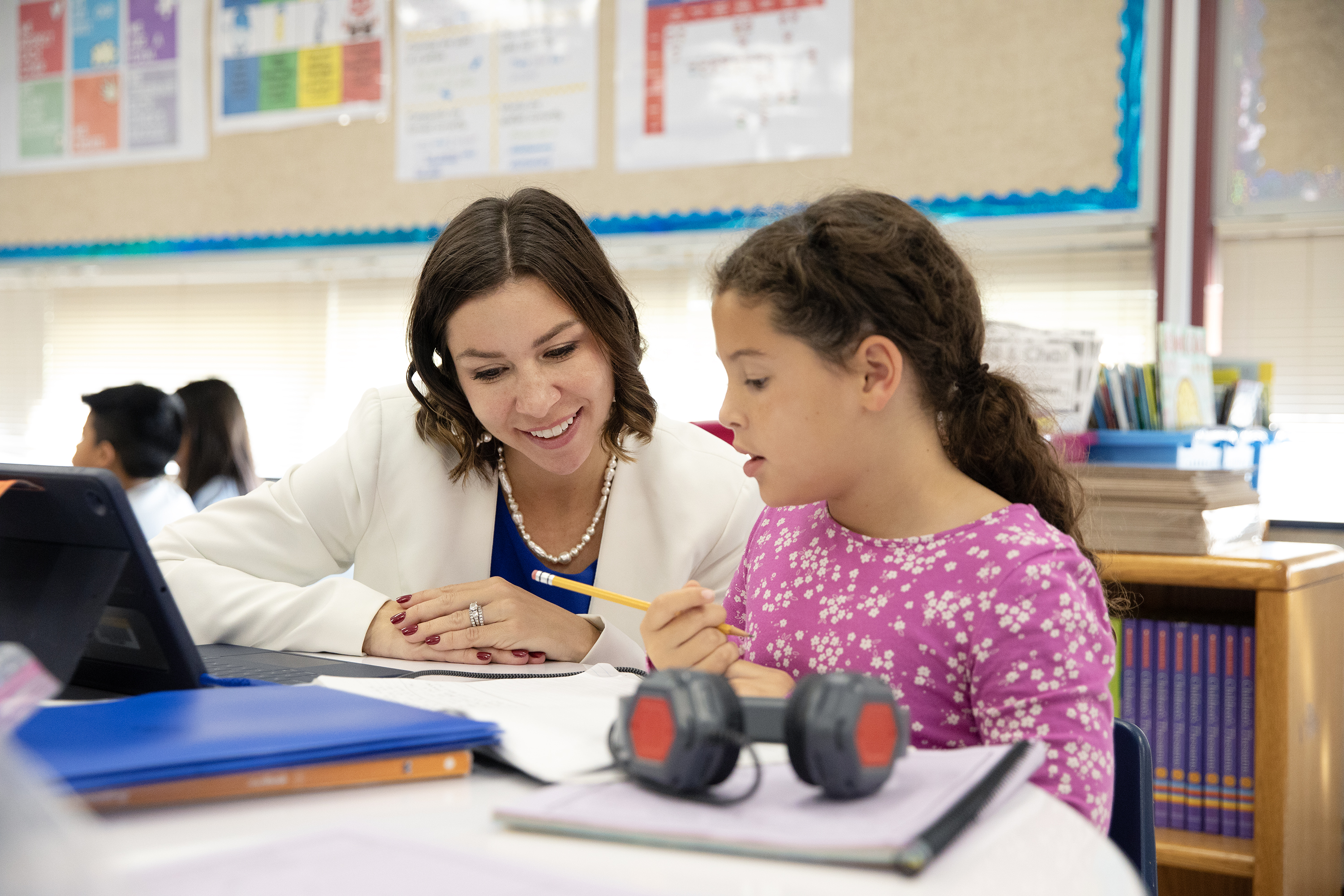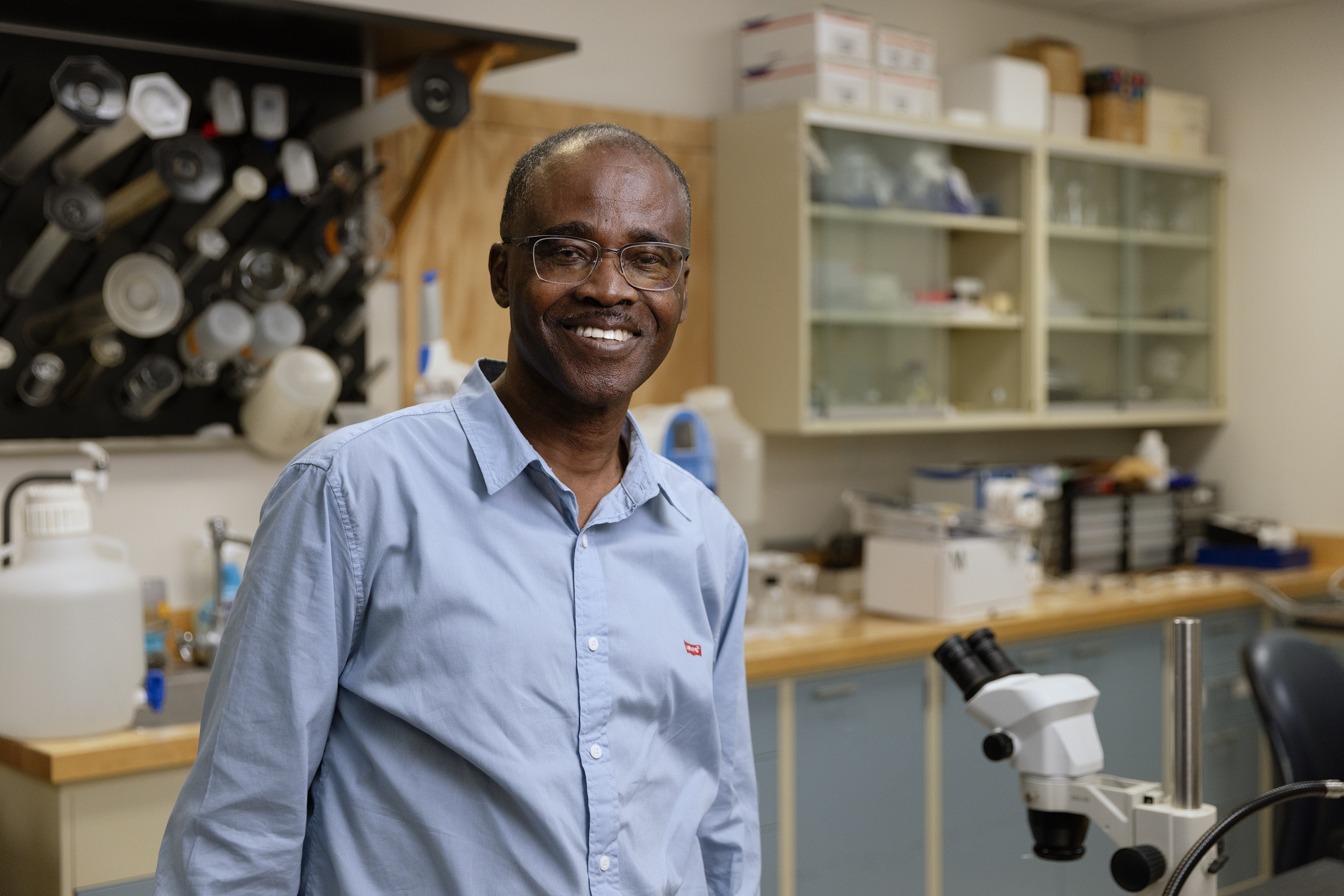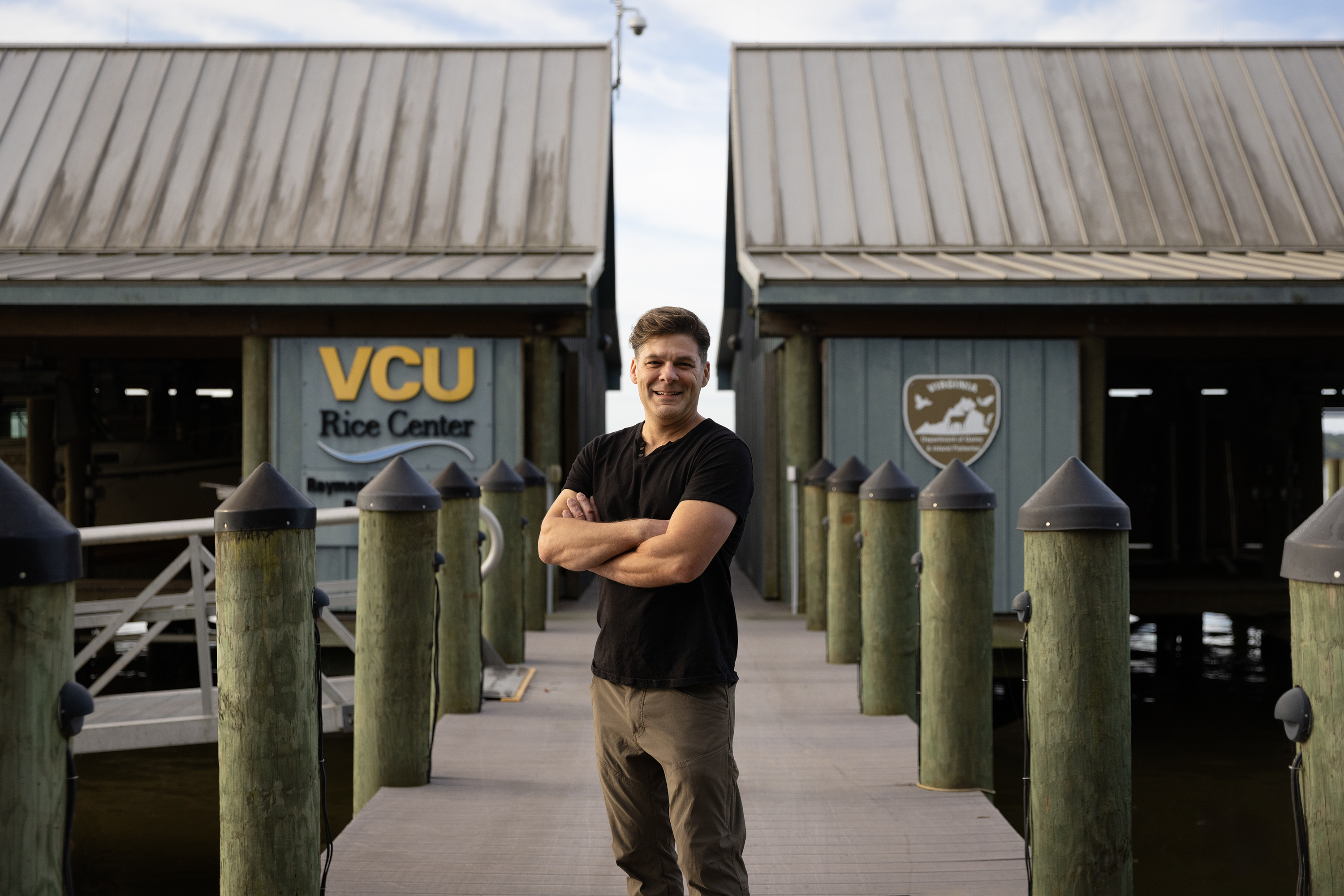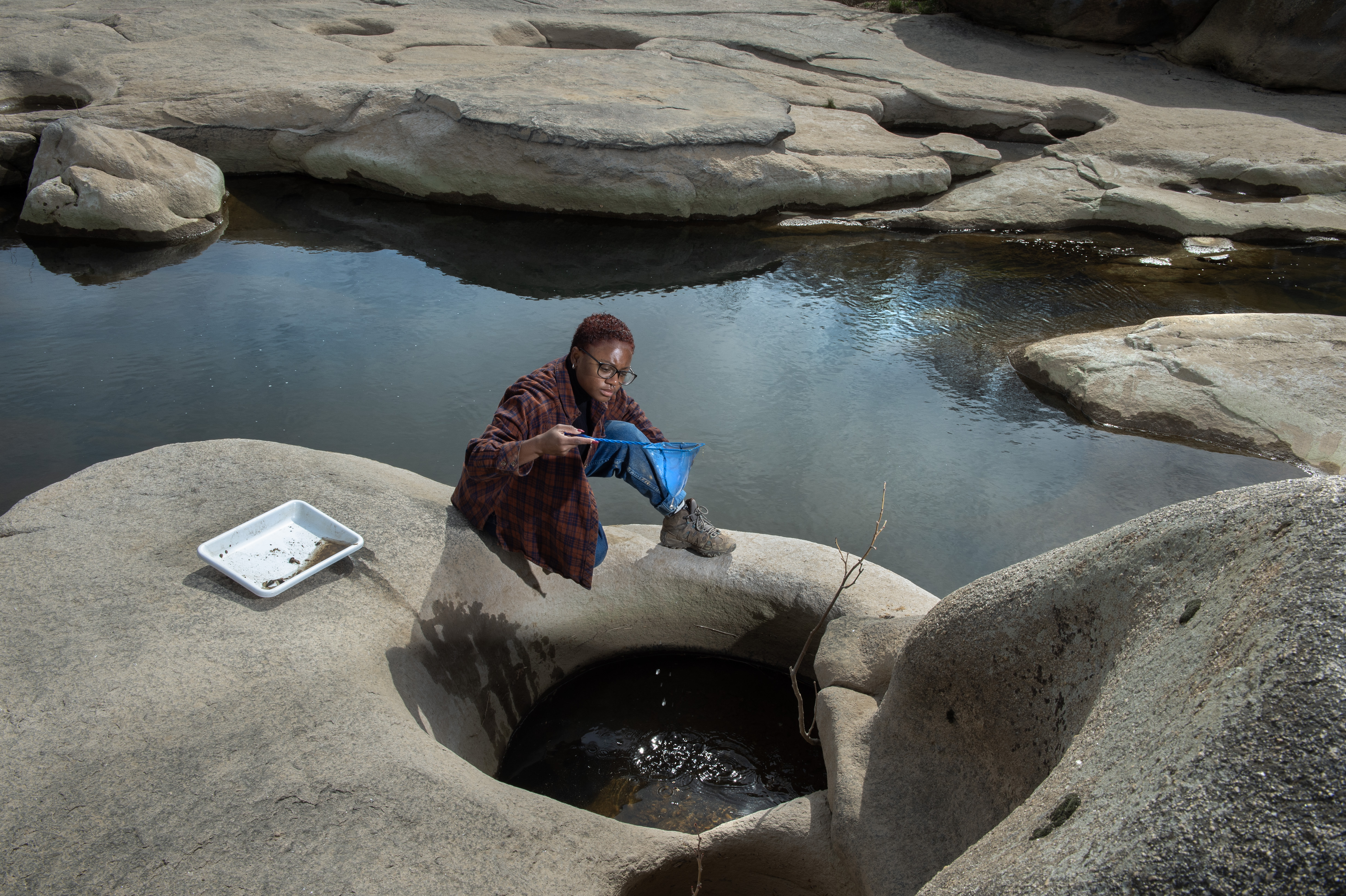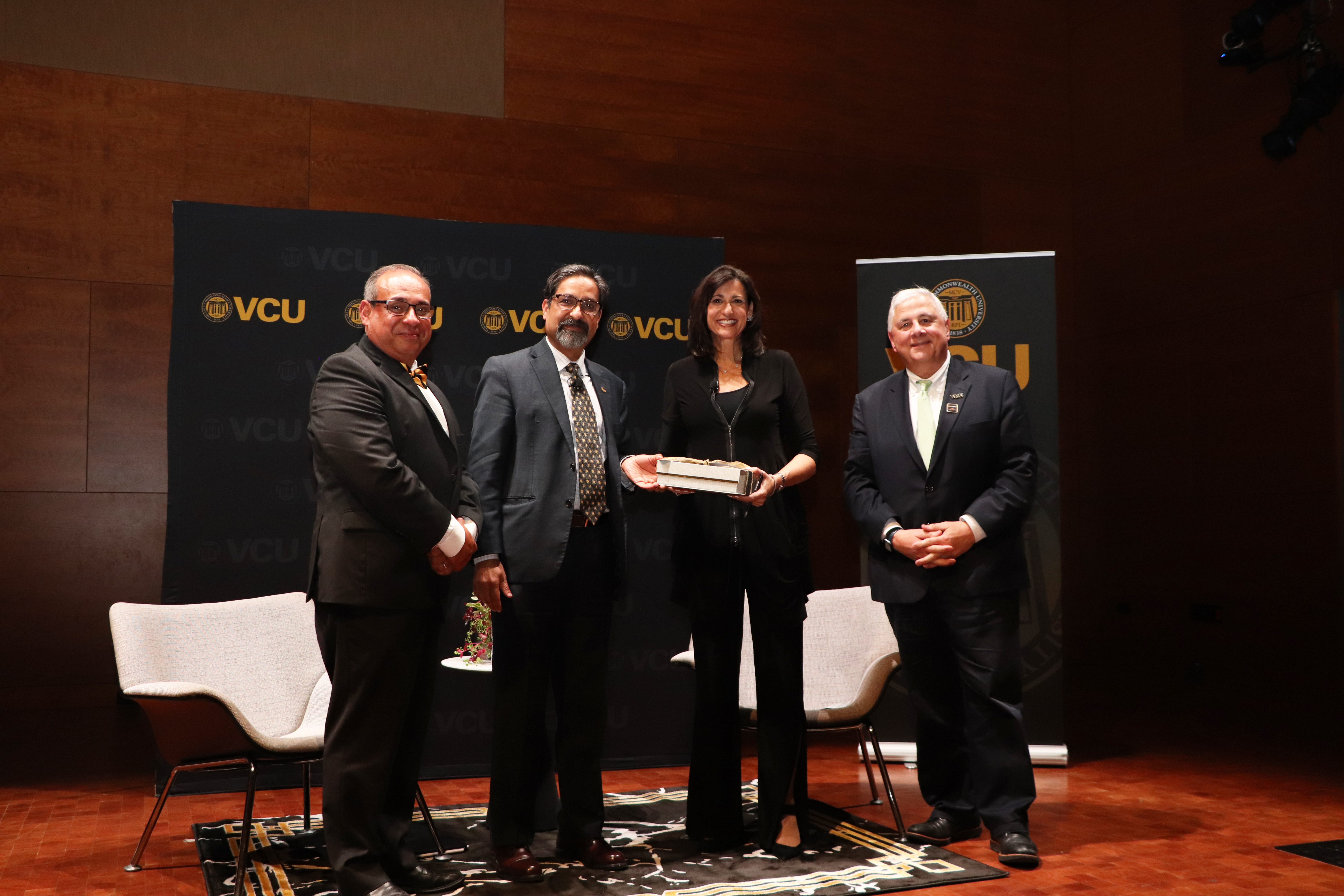Transdisciplinary project using robotics to advance concussion recovery
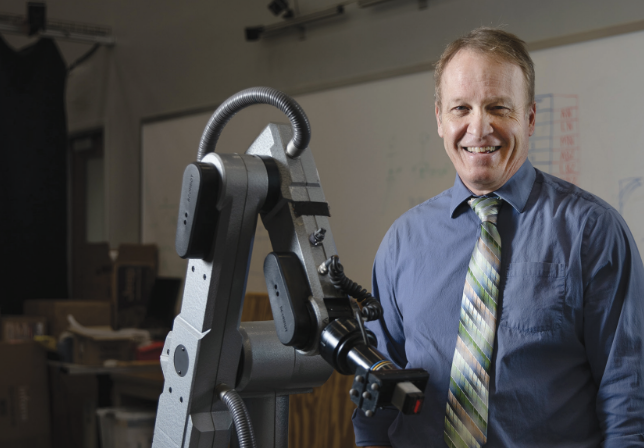
Peter Pidcoe, P.T., D.P.T., Ph.D., and graduate student researchers are using a robotic arm to study how concussions impact a person's vestibulo-ocular reflex, which is responsible for eye movement stability. The project aims to develop a method to assess concussion severity and recovery time. Watch the team work and hear from Dr. Pidcoe firsthand about this concussion recovery project.
We can help drive therapy, we can actually measure the response of therapy. It’s a great way to use tools that medicine may not be aware of and apply them to human recovery.
Controlled cruelty: New study from VCU finds aggression can arise from successful self-control
 David Chester, Ph.D., an associate professor of social psychology at VCU's Department of Psychology, has found that aggression can be a result of successful self-control, challenging the traditional view that aggression is due to poor self-control.
David Chester, Ph.D., an associate professor of social psychology at VCU's Department of Psychology, has found that aggression can be a result of successful self-control, challenging the traditional view that aggression is due to poor self-control.
Chester's study suggests that aggressive individuals often have strong self-control, allowing them to plan and execute their harmful actions, rather than acting on belligerent impulses, as one would typically assume for aggressive individuals. Existing therapies and interventions teach individuals to inhibit their impulses, which could coincidentally teach individuals how best to implement their aggressive tendencies, rather than improve their self-control. These findings can provide a new framework for understanding the complexities of aggression, opening up new avenues for research into its causes and potential treatments.
Global study on forgiveness was rooted in the work of VCU professor emeritus Everett Worthington
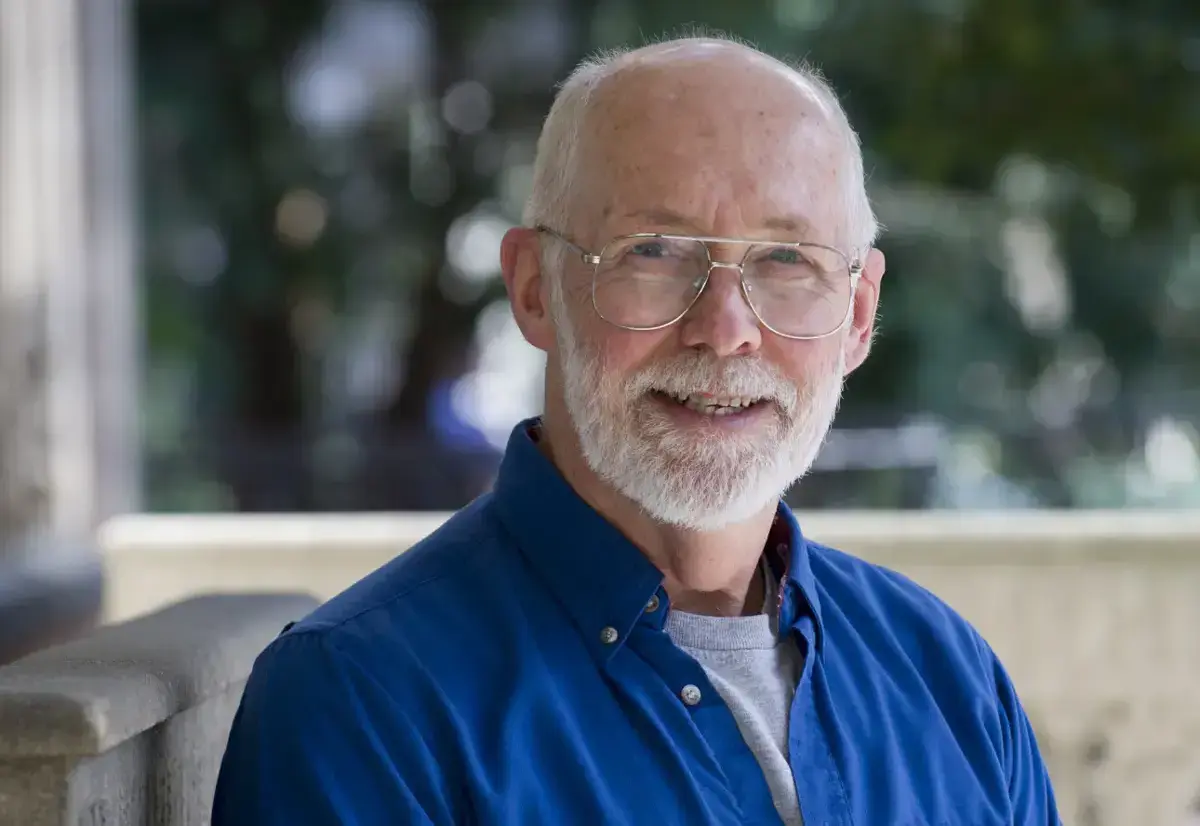 Research shows forgiveness is learnable. A study by Everett Worthington, Ph.D., emeritus professor in the Department of Psychology in VCU’s College of Humanities and Sciences, found that people can significantly improve their ability to forgive through a workbook-based program.
Research shows forgiveness is learnable. A study by Everett Worthington, Ph.D., emeritus professor in the Department of Psychology in VCU’s College of Humanities and Sciences, found that people can significantly improve their ability to forgive through a workbook-based program.
Through completion of a workbook, individuals noticed a reduction in their depression, anxiety and an overall increase in their well-being. Worthington’s research provides a scalable and effective method for promoting forgiveness on a broader societal level, giving individuals the tools to learn how to forgive more efficiently.
With a game show as his guide, VCU researcher uses AI to predict deception
 Xunyu Chen from VCU's School of Business used data from a game show to teach a computer how to analyze facial, verbal and movement cues to detect deception, resulting in high accuracy in predicting lies in high-stakes scenarios.
Xunyu Chen from VCU's School of Business used data from a game show to teach a computer how to analyze facial, verbal and movement cues to detect deception, resulting in high accuracy in predicting lies in high-stakes scenarios.
This research extends the understanding toward deception and trust behaviors that could lead to substantial consequences from a scientific and quantitative perspective. Researchers and practitioners can use findings from this research to analyze human behaviors in presidential debates, business negotiations and court trials, to predict deception and the protection of self-interest.
Is napping good for you? If you do it the right way, VCU researcher says.
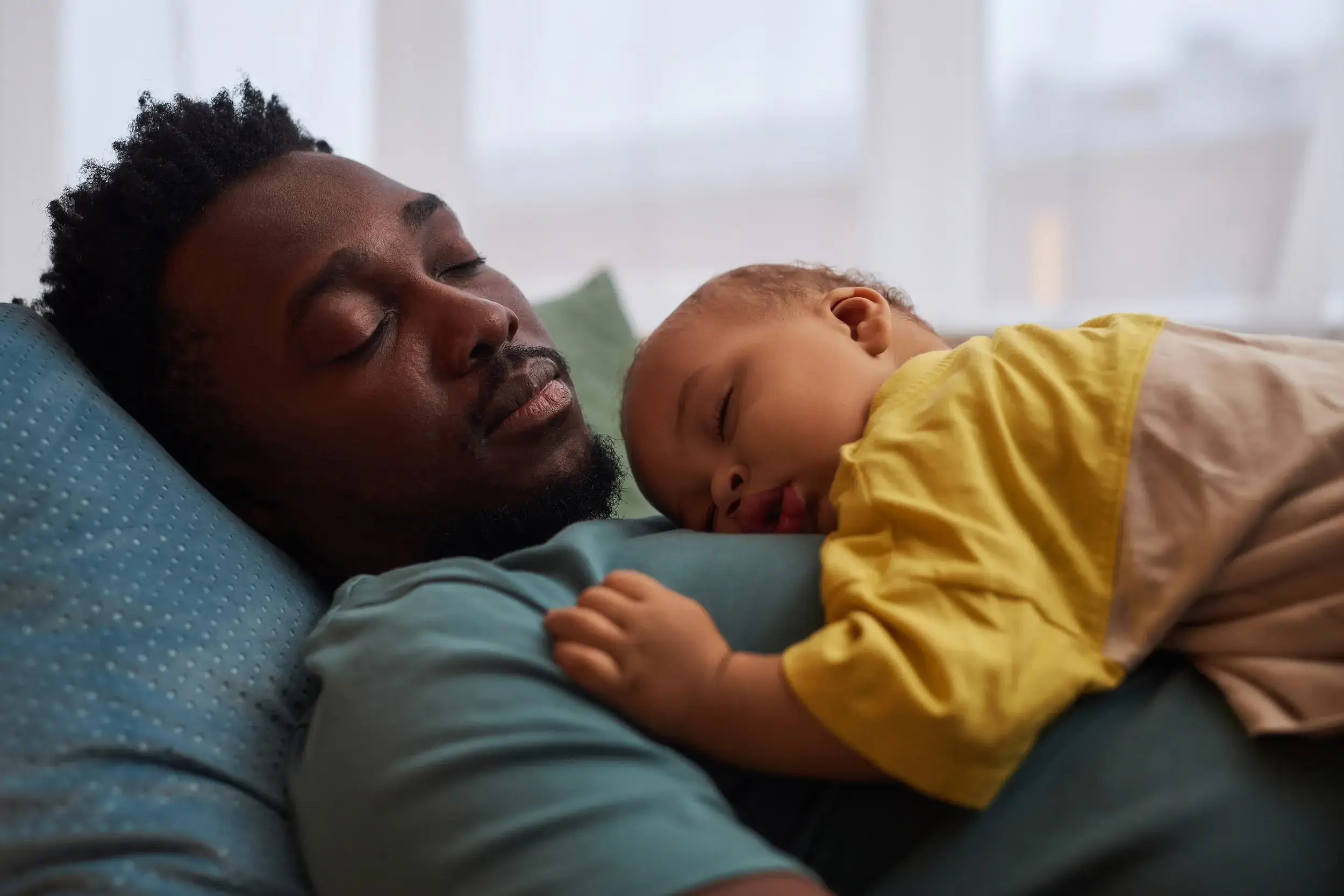 Natalie Dautovich, Ph.D., associate professor in the Department of Psychology in VCU’s College of Humanities and Sciences, examines daily processes, including sleep, that anchor well-being across adulthood.
Natalie Dautovich, Ph.D., associate professor in the Department of Psychology in VCU’s College of Humanities and Sciences, examines daily processes, including sleep, that anchor well-being across adulthood.
Her findings suggest that short, mid-afternoon naps can enhance alertness, cognitive function and mood, however, excessive or poorly timed naps can disrupt nighttime sleep. Short afternoon naps (20 minutes or less) can boost energy, focus, and mood, but napping too much or too late in the day can also interfere with sleep.
What will it take for artificial intelligence to be safe and secure? VCU expert considers election integrity and other threats that lie ahead.
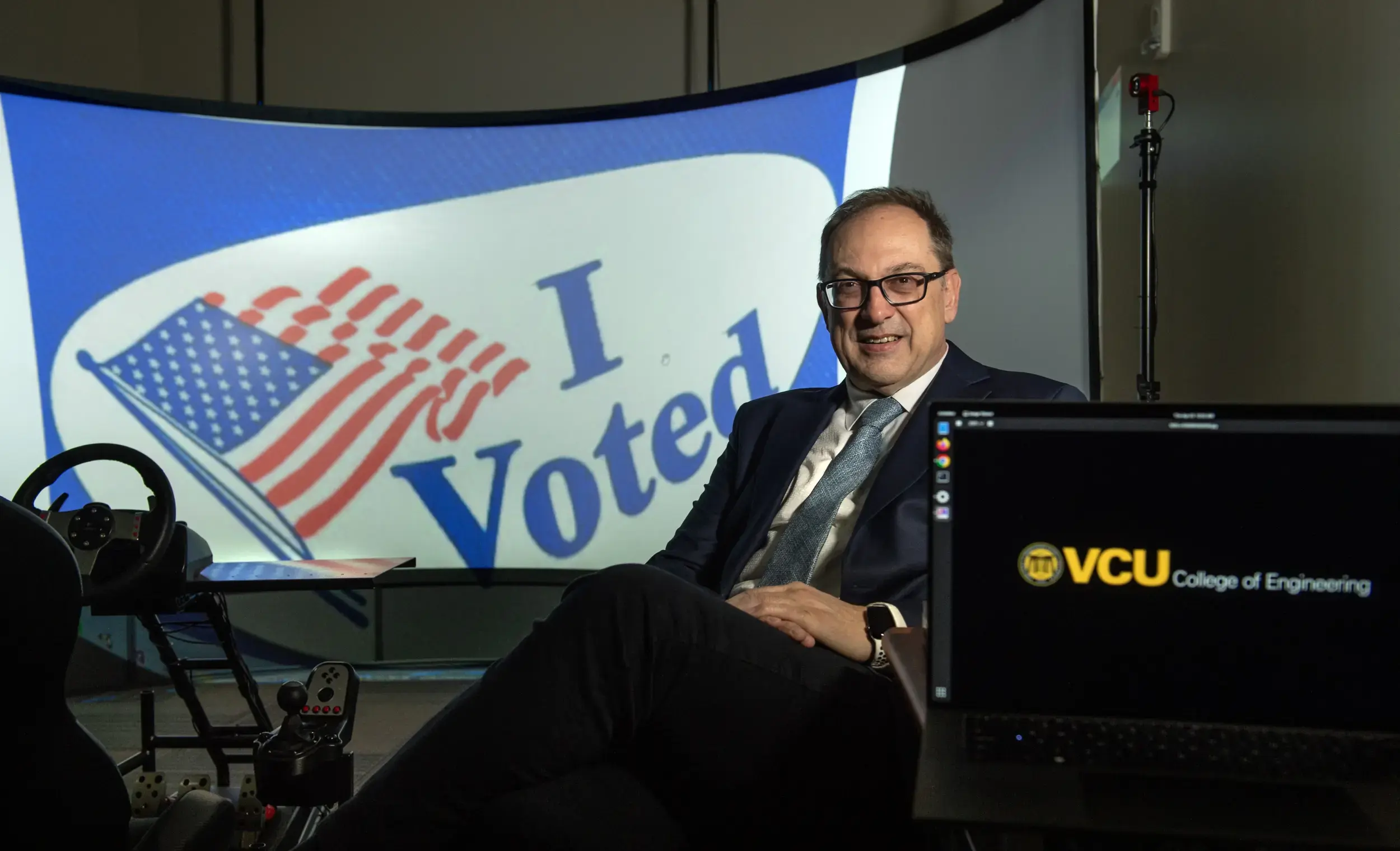 VCU’s College of Engineering’s Milos Manic, Ph.D., is exploring the impact of AI on elections, focusing on the public trust in social and traditional media that can sway existing voters’ opinions. Manic's work highlights the challenge of real-time AI fraud detection and the potential for AI to manipulate public opinion.
VCU’s College of Engineering’s Milos Manic, Ph.D., is exploring the impact of AI on elections, focusing on the public trust in social and traditional media that can sway existing voters’ opinions. Manic's work highlights the challenge of real-time AI fraud detection and the potential for AI to manipulate public opinion.
Manic’s research suggests that human vulnerabilities and inherent trust in media outlets plays a more significant role in cyberwars than the technology itself. With more advances in AI technology, it is becoming increasingly important to understand human vulnerability to combat these deceptions.
